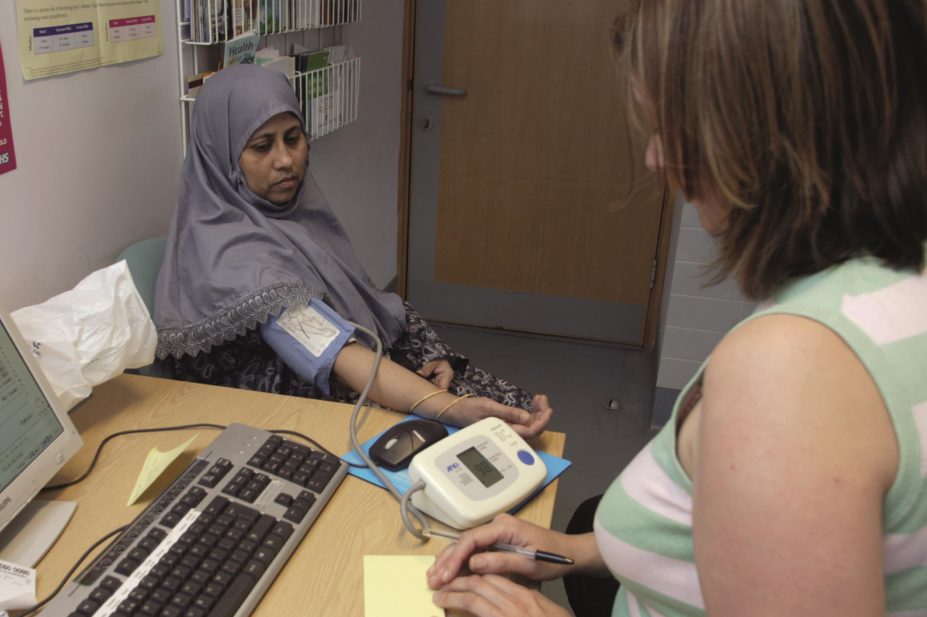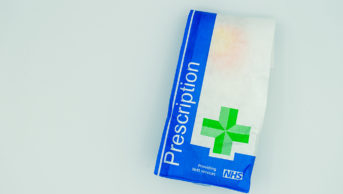
Shutterstock
Four types of commonly prescribed blood pressure medicines may have an impact on mood disorders such as depression or bipolar disorder, according to research.
Researchers found that calcium channel antagonists and beta blockers appear to increase the risk of mood disorders, while angiotensin-converting enzyme (ACE) inhibitors and angiotensin-receptor blockers (ARBs) appear to decrease the risk. Thiazide diuretics have no impact on risk of mood disorders, the study found.
“Mental health is under-recognised in hypertension clinical practice, and the possible impact of antihypertensive drugs on mental health is an area that physicians should be aware of and consider if the treatment of high blood pressure is having a negative impact on their patient’s mental health,” says Sandosh Padmanabhan, one of the researchers from the Institute of Cardiovascular and Medical Sciences, University of Glasgow.
The team analysed anonymised data from two Scottish hospitals on 525,046 patients receiving antihypertensive drugs who had been admitted at least once between 1980 and March 2013.
A total of 144,066 patients met the inclusion criteria of being treated with monotherapy of angiotensin antagonists, beta blockers, calcium channel blockers or thiazide diuretics for more than 90 days and followed up for five years. These patients were compared with a group of 111,936 patients who did not take any antihypertensive drugs.
Publishing their findings in Hypertension[1]
(online, 10 October 2016), the researchers found that during the five years of follow up there were 299 hospital admissions for mood disorders, predominantly major depression, and the median time to admission was 2.3 years after the start of follow up.
Patients taking ACE inhibitors or ARBs had the lowest risk for mood disorder admissions. Statistical analysis revealed that compared with this group, patients taking beta blockers or calcium antagonists had a two-fold increased risk of hospital admission for mood disorder; beta blockers (hazard ratio [HR] 2.11; 95% confidence interval [CI] 1.12–3.98; P=0.02) and calcium antagonists (HR 2.28; CI 1.13–4.58; P=0.02).
Patients taking thiazide diuretics had the same risk of developing a mood disorder as patients taking no antihypertensive medicine; thiazide diuretics (HR 1.56; CI 0.65–3.73; P=0.32) and no antihypertensives (HR 1.63; CI 0.94–2.82; P=0.08).
Padmanabhan says the findings suggest that angiotensin-converting enzyme inhibitors and angiotensin-receptor blockers could be useful as new or “repurposed” treatments for mood disorders. However, he points out that the results needed to be validated by other studies.
“This is a single centre study, which looked at the risk of the more severe forms of mood disorders requiring hospitalisation,” he says. “It would be important to study the effect of these drugs on minor to modest changes in mood, as these will have an impact on the quality of life among hypertensive patients.”
Adrian Brady, a consultant cardiologist at Glasgow Royal Infirmary who is president of the British and Irish Hypertension Society Council, describes the study as “intriguing but not conclusive”.
“The study only examines the extreme end of the mood spectrum, recording hospital admission with mood disorder, and antihypertensive therapy. No information is obtained about lesser degrees of depression/anxiety,” he says.
One way a potential association could be investigated would be to examine data from old placebo controlled studies to see whether there was any excess of psychological morbidity associated with drug therapy versus placebo.
Graham MacGregor, chairman of Blood Pressure UK, says it is an interesting study but that the authors themselves recognise that the results need replicating.
“The absolute difference between the two treatments is small,” he says. “Additionally large numbers of patients were excluded, presumably because they were on a combination of an ACE inhibitor or an ARB plus calcium antagonists, which is widely used in the majority of patients with high blood pressure in the UK, and it is unclear what the effect of the two classes of drugs combined together would be.”
He adds: “Blood Pressure UK advises patients not to do anything about their treatment based on this study until further studies have been done. By far the most important thing is to make sure their blood pressure is well controlled and continues to be well controlled throughout their life in order to get the maximum reduction in their risk of developing a stroke, heart attack or heart failure and kidney disease.”
References
[1] Boal AH, Smith DJ, McCallum L et al. Monotherapy with major antihypertensive drug classes and risk of hospital admissions for mood disorders. Hypertension 2016;68:1132–1138. doi: 10.1161/HYPERTENSIONAHA.116.08188


